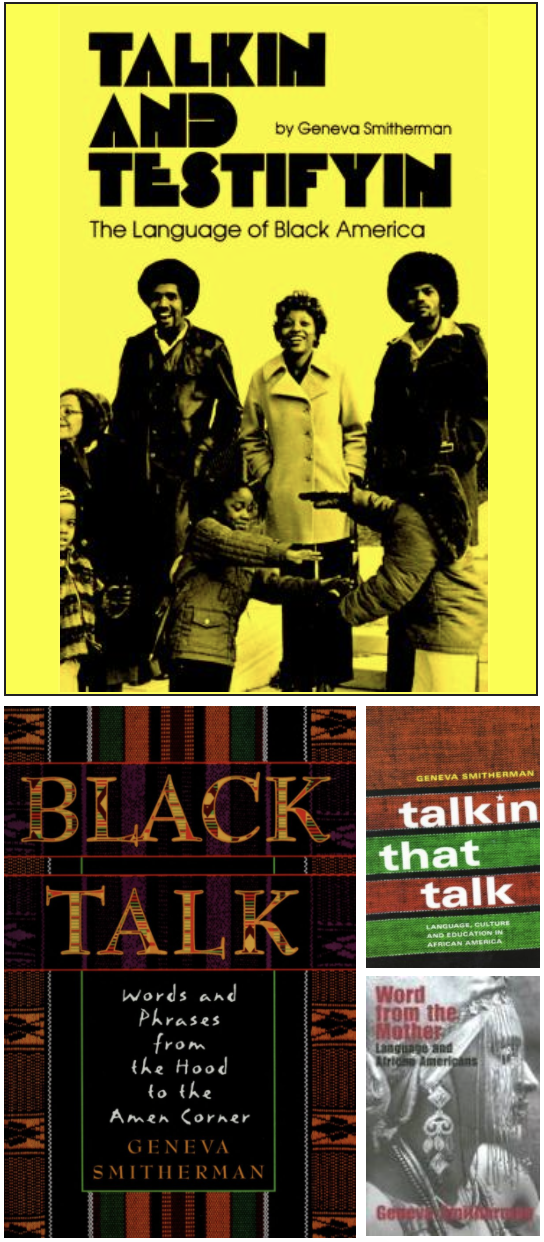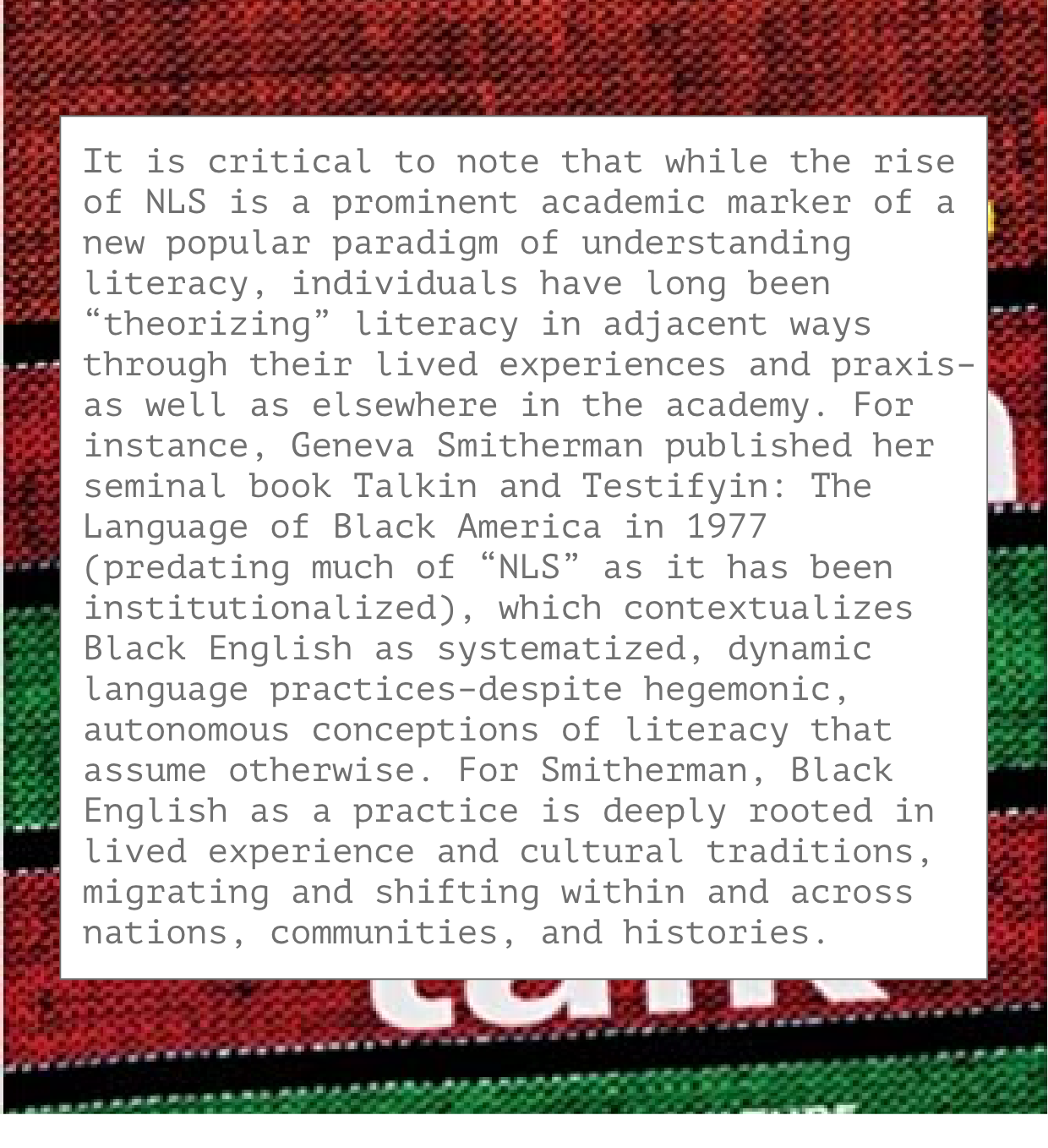Much of my research explores the relationship between literacy and movement within and across spaces. In this work, I draw on scholarship in composition-rhetoric studies around literacy as it pertains to mobility–with particular attention to transnational and migration studies, dynamics between “in school” vs. “out of school” (home/community) literacy practices, and place studies.
My understanding of literacy builds off of the New Literacy Studies (NLS) movement (beginning in the 1980s), which challenged Eurocentric, whitewashed traditions of defining literacy as exclusively text-based, composed in “Standard Written English,” and cultivated in school. Such “autonomous” (Street) models valorize the power of attaining some singular form of “literacy,” assuming that it can cultivate higher- order cognition, “civility” and other democratic/assimilationist/ nationalist ideals, and economic mobility.
In response, NLS (and adjacent scholars) suggest that we can never isolate Literacy as an independent variable outside of context. Rather, we should see Literacy as ideological, “fluid” (Guerra); situational and geographically specific; tied to identity (race, culture, gender, class-and their intersections) (Pritchard, Richardson); and multimodal (Prior & Shipka)-encompassing everything from photography, to music, to participation in city council meetings (Kinloch).


Because (new) Literacy studies emphasizes literacy’s inseparability from geographic location, community, and power structures, it often examines how Literacy moves across such contexts-particularly how it functions in “borderlands” (Anzaldúa) or at the margins (Guerra). Indeed, “mobility” has become a through line for me in diverse conversations around literacy. In my work, I bring together scholarship that directly considers literacy as it relates to literal/material forms of mobility–particularly transnational movement of people and language across borders (Meyers, Lorimer Leonard)–and texts that think more symbolically about mobility at the discursive or linguistic level–how literacy transforms via code switching (Zentella), code meshing (Canagarajah), and/or translingualism (Horner et. al). Literacy is also critical to consider in contexts of immobility, especially in how it is mitigated by technologies of imperialism, including policing and carcerality (Winn).
Often, material and metaphorical (im)mobility reinforce one another, and in other instances work against each other in complex ways that merit interrogation. For example, Kate Vieira emphasizes “papers” as a physical, bureaucratic literacy artifacts that mitigate mobility from a legal perspective-as well as (though differently) from a symbolic perspective in the community she examines. For Vieira (and others), mobility, then, does not mean one thing–and nor does literacy. I am interested in exploring the relationship between literacies and mobilities-as both material and symbolic, as local and global, as fluid and multiple. In doing so, I consider literacy both inside and outside school in terms of what it does (and is thought to do)–and for whom–and its sociomaterial “consequences” (Vieira).